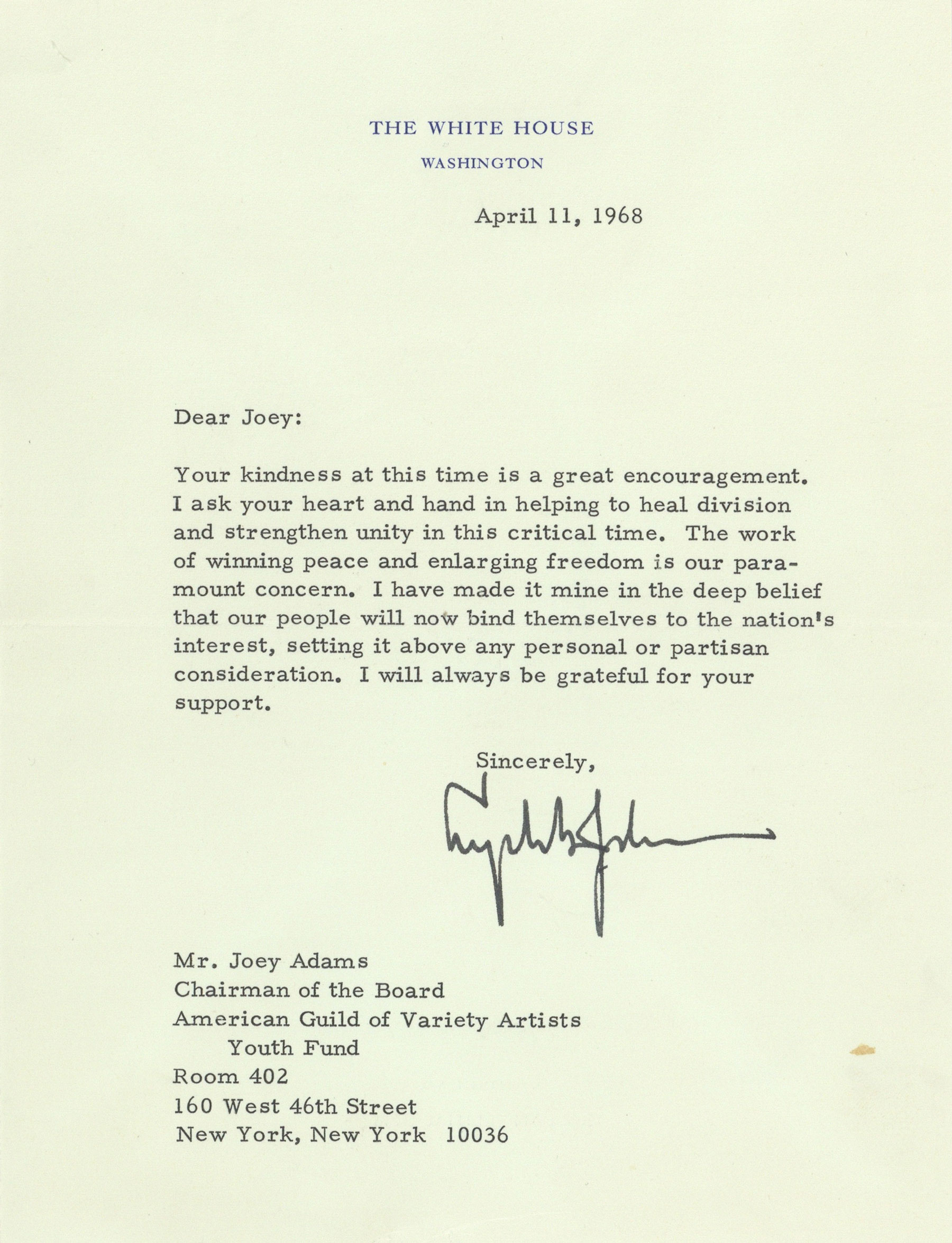President Lyndon Johnson Explains His Decision to Not Run Again: “The deep belief that our people will now bind themselves to the nation’s interest, setting it above any personal or partisan consideration”




"The work of winning peace and enlarging freedom is our paramount concern"
- Currency:
- USD
- GBP
- JPY
- EUR
- CNY
As 1968 dawned, nobody doubted that Johnson would run for a second term as President, and indeed his name was entered in early primaries with his consent. However, early 1968 was tumultuous and events were fast-moving and unpredictable. On January 30, the North Vietnamese launched the massive Tet Offensive, a surprise attack...
As 1968 dawned, nobody doubted that Johnson would run for a second term as President, and indeed his name was entered in early primaries with his consent. However, early 1968 was tumultuous and events were fast-moving and unpredictable. On January 30, the North Vietnamese launched the massive Tet Offensive, a surprise attack on South Vietnamese and American forces that reached from every province in Vietnam right into the American embassy itself. Although U.S. and South Vietnamese forces claimed victory based on repulsing the attacks and body counts, the Tet Offensive made the American people realize that their opponent was stronger and better organized than had been previously realized, and that the light (a military victory) was not visible at the end of the tunnel, as had been promised. Meanwhile, this turn in the struggle made Johnson even more secretive, determined, and hypersensitive to criticism. Then, on March 12, 1968, came the New Hampshire primary, in which Johnson was opposed by Sen. Eugene McCarthy, an outspoken foe of the war but a virtual unknown lacking any funds or any sense of charisma. Johnson had done well in New Hampshire in the 1964 election, and it was anticipated that he would clobber McCarthy, and that if McCarthy could gain any appreciable vote it would be a miracle. Johnson won, all right, but it was a narrow victory (McCarthy received over 40% of the vote) that showed how vulnerable Johnson was.
Some of Johnson’s closest advisors now counseled de-escalation in Vietnam. Confronted by mounting opposition, on March 31, 1968, Johnson stunned the nation with two surprise announcements: he would stop the bombing in most of North Vietnam to seek a negotiated end to the war, and he would not run for reelection. LBJ, who had so hungered for the presidency, in the end had had enough.
Typed letter signed, White House letterhead, Washington DC, April 11, 1968, to Mr. Joey Adams, Chairman of the Board, American Guild of Variety Artists Youth Fund. “Dear Joey: Your kindness at this time is a great encouragement. I ask your heart and hand in helping to heal division and strengthen unity in this critical time. The work of winning peace and enlarging freedom is our paramount concern. I have made it mine in the deep belief that our people will now bind themselves to the nation’s interest, setting it above any personal or partisan consideration. I will always be grateful for your support.”

Frame, Display, Preserve
Each frame is custom constructed, using only proper museum archival materials. This includes:The finest frames, tailored to match the document you have chosen. These can period style, antiqued, gilded, wood, etc. Fabric mats, including silk and satin, as well as museum mat board with hand painted bevels. Attachment of the document to the matting to ensure its protection. This "hinging" is done according to archival standards. Protective "glass," or Tru Vue Optium Acrylic glazing, which is shatter resistant, 99% UV protective, and anti-reflective. You benefit from our decades of experience in designing and creating beautiful, compelling, and protective framed historical documents.
Learn more about our Framing Services













































































































